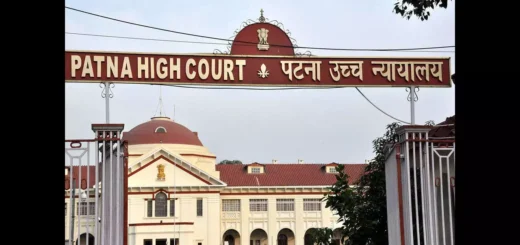The Supreme Court has stated that it is essential to collect witness evidence to support charges, even during a one-sided disciplinary inquiry.

The Supreme Court ruled that it is essential to record witness evidence to prove charges, even in ex-parte inquiries. The Court overturned the Allahabad High Court’s decision and reinstated the Uttar Pradesh State Public Services Tribunal’s order in favor of the Appellant. The Court stated that the inquiry against the Appellant was invalid because the department did not record any oral evidence to support the charges. Justices Pamidighantam Sri Narasimha and Sandeep Mehta noted that recording witness evidence is crucial in ex-parte inquiries. They reviewed the case based on the 1999 Rules and previous court decisions, concluding that the inquiry against the Appellant, which involved serious penalties, was completely flawed due to the absence of recorded evidence.
AOR Christopher Dsouza represented the Appellant, while AOR Bhakti Vardhan Singh represented the Respondents. This case stemmed from disciplinary actions taken against the Appellant while he was an Assistant Commissioner in Commercial Tax. The disciplinary authority had imposed penalties, including a Censure Entry and the stoppage of two grade increments, based on an Inquiry Report. The Appellant contested the penalties by filing a Claim Petition with the Tribunal. The Tribunal ruled in favor of the Appellant, annulled the penalty, and ordered that he receive all related benefits, stating that the Inquiry Officer’s findings were unreasonable and poorly explained.
The disciplinary authority submitted a Writ Petition to the High Court, which confirmed the penalty against the Appellant. Dissatisfied with this decision, the Appellant appealed to the Supreme Court. The Supreme Court emphasized that evidence from a preliminary inquiry cannot be used in a regular inquiry, as this violates natural justice principles. The Court referenced its earlier ruling in Nirmala J. Jhala v. State of Gujarat (2013), stating that since the delinquent is not involved in the preliminary inquiry, they do not have the chance to cross-examine witnesses. “Therefore, it is clear that using evidence from a preliminary inquiry in a regular inquiry is not allowed, as the delinquent is not part of it and cannot cross-examine those who were questioned. This would breach natural justice,” the Court noted.
As a result, the Court declared, “Thus, the judgment from 30th July, 2018 is annulled, and the order from 5th June, 2015 by the Public Service Tribunal, Uttar Pradesh is reinstated. The appellant is entitled to all related benefits.” Consequently, the Supreme Court granted the Appeal.
Cause Title: Satyendra Singh v. State Of Uttar Pradesh & Anr. (Neutral Citation: 2024 INSC 873)









